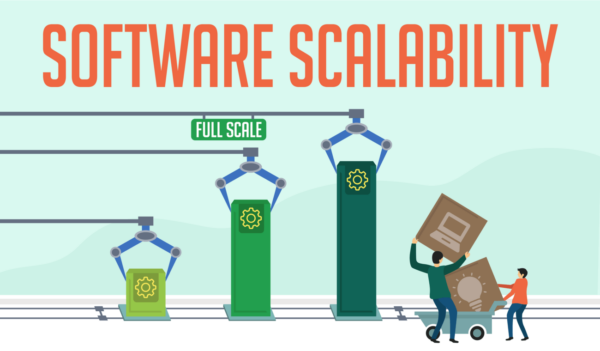Scalability is a crucial concept in the realm of technology and networking, particularly in the context of free VPN services like FineVPN. It refers to the ability of a system, network, or software application to handle growing amounts of work in a graceful manner. In the context of VPNs, scalability becomes paramount as the demand for secure and private internet access continues to rise globally.
Understanding Scalability
Scalability is about more than just handling increased load; it encompasses various aspects such as performance, capacity, and reliability. In the case of VPN services, scalability ensures that the infrastructure can accommodate a growing number of users without sacrificing performance or security.
Expanding the Topic of Scalability
As the user base of a free VPN service like FineVPN grows, scalability becomes a critical factor in maintaining quality of service. This involves optimizing server resources, load balancing, and implementing efficient routing protocols to ensure seamless connectivity for users across the globe.
Key Features of Scalability
The key features of scalability include:
- Flexibility: Scalable systems can adapt to changing demands by dynamically allocating resources as needed.
- Redundancy: Scalable architectures often incorporate redundancy to ensure high availability and fault tolerance.
- Elasticity: Scalable systems can scale up or down in response to fluctuations in demand, allowing for efficient resource utilization.
Types of Scalability
Scalability can be categorized into several types:
| Type | Description |
|---|---|
| Vertical Scalability | Increasing the capacity of individual components within the system. |
| Horizontal Scalability | Adding more instances of components to distribute the workload. |
| Load Scalability | Handling increasing loads by adding resources or optimizing processes. |
Using Scalability
Some common ways to leverage scalability in the context of VPN services include:
- Accommodating a growing user base without compromising performance.
- Handling spikes in traffic during peak usage hours or events.
- Scaling infrastructure to support new features or services.
Challenges and Solutions
Despite its benefits, scalability can present challenges such as:
- Complexity in managing distributed systems.
- Potential for increased costs with additional resources.
- Ensuring seamless scalability without disrupting service.
These challenges can be addressed through:
- Automation of deployment and scaling processes.
- Implementing efficient resource utilization strategies.
- Regular monitoring and optimization of infrastructure.
Characteristics and Comparisons
| Characteristic | Scalability | Elasticity |
|---|---|---|
| Definition | Ability to handle increasing workload. | Ability to scale resources dynamically. |
| Focus | Accommodating growth over time. | Adapting to changing demands instantly. |
| Scope | System-wide optimization and expansion. | Resource allocation based on demand. |
Future Perspectives and Technologies
Future advancements in scalability may involve:
- Integration of machine learning algorithms for predictive scaling.
- Adoption of serverless architectures for on-demand resource allocation.
- Implementation of edge computing to reduce latency and improve performance.
VPN and Scalability
VPNs can benefit from scalability in various ways, including:
- Supporting a larger user base without compromising speed or security.
- Scaling server infrastructure to accommodate global demand.
- Adapting to changing regulatory environments and technological advancements.
Resources for Further Information
For more in-depth insights into scalability and its implications for VPN services, consider exploring the following resources:
- “Scalability Rules: Principles for Scaling Web Sites” by Martin L. Abbott and Michael T. Fisher.
- “Designing Data-Intensive Applications” by Martin Kleppmann.
- “Scalable Internet Architectures” by Theo Schlossnagle.
By understanding and implementing scalability principles, free VPN services like FineVPN can ensure reliable and efficient connectivity for users around the world, regardless of fluctuations in demand or usage patterns.


